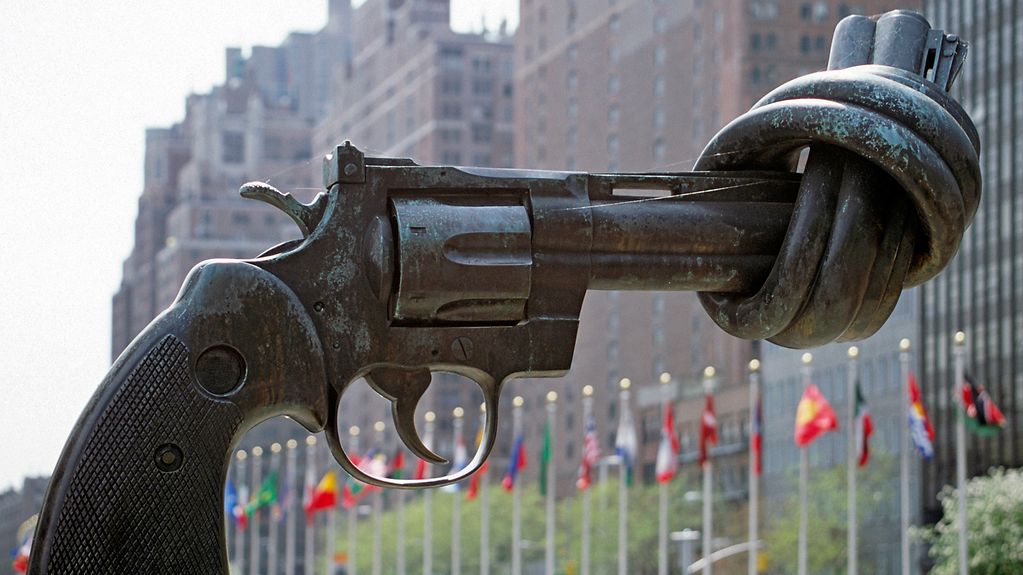Federal Government Guidelines
Peace is the essential precondition if people are to be able to live in dignity and freedom – especially at a time when world events are dominated by epidemics, natural disasters and armed conflicts. That is why the German government is working worldwide to prevent crises and conflicts.
2 min reading time

Non-Violence, also known as the Knotted Gun sculpture, outside the UN Headquarters in New York. The German government is working to prevent crises worldwide.
Photo: UN Photo
In 2017 the government adopted the Federal Government of Germany Guidelines on Preventing Crises, Resolving Conflicts, Building Peace. The guidelines are not only an affirmation of Germany’s commitment to peace, freedom and security in the world. They also demonstrate the special responsibility for peace that results from German history. The German government has now taken stock of the implementation of the guidelines.
What are the guidelines?
With the guidelines, for the first time the German government put in place a framework for joint inter-ministerial implementation of measures. They are designed to help recognise international crises at an early stage as well as preventing conflicts.
The implementation process was supported over the last few years by peace lab debates and wide-ranging exchanges among people from the realms of politics, civil society and the academic community. The guidelines, with their 50 voluntary commitments, set out ways and structures that can be used to advance the joint commitment to peace and security to a greater extent.
Taking stock after four years
Since the guidelines were adopted, inter-ministerial cooperation on crisis management has improved significantly, especially in the early recognition of crises, assessing global developments and consultation and coordination on preventing and stabilising conflicts.
In many areas, including security sector reform and promotion of the rule of law, in coming to terms with the past and in mediation, common strategies have been elaborated and international experience incorporated.
International engagement
At international level in particular the German government has further expanded its engagement. During Germany’s non-permanent membership of the United Nations Security Council, for instance, the country has worked to strengthen the UN blue helmet and peace keeping missions. One example is the transition to a political mission with the focus on consolidating the peace in Sudan. The German government also put nuclear disarmament back on the UN agenda.
Germany is also actively involved in crisis prevention and crisis management missions within the framework of NATO and in EU military and civilian missions. This includes seconding civilian experts through the Center for International Peace Operations (ZIF) and founding the European Centre of Excellence for Civilian Crisis Management in Berlin.
Looking to the future
Four years after the guidelines were first implemented, there have been additional developments that will shape crisis engagement in future: the correlation between the climate crisis and peace, security and sustainable development, the need to strengthen health systems and the way we address pandemics.
In future, the EU will play an increasingly important role as an international actor in the fields of crisis prevention, conflict transformation and peacebuilding. In this, the German government will support it. It will finetune the guidelines and continue to consolidate crisis prevention policies. The goal will be to take earlier, more resolute and more substantive action to better prevent or end conflicts in future.